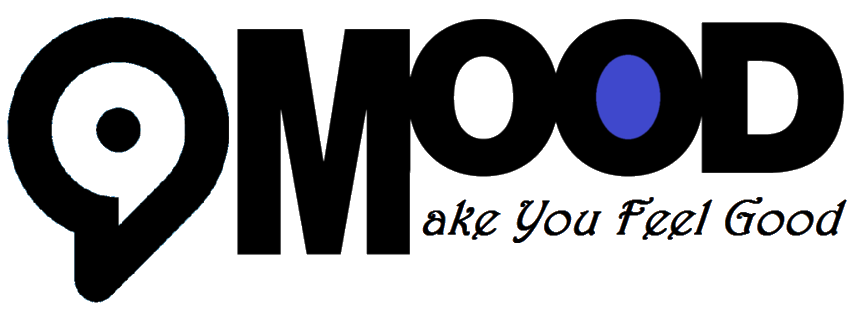Leviathan in Mythology: Unraveling the Origins, Meaning, and Symbolism of the Sea Serpent
The Leviathan is one of the most fascinating and enduring creatures in mythology, appearing in a range of cultures and ancient texts. Known primarily as a monstrous sea serpent or dragon, the Leviathan has captured humanity’s imagination for centuries. This ancient being symbolizes both the terrifying power of nature and the complexity of creation myths. Whether through the biblical references in Judeo-Christian texts or the vast depictions in other ancient cultures, the Leviathan’s symbolic presence continues to intrigue scholars and myth lovers alike.

The Origins of the Leviathan in Mythology
The earliest references to the Leviathan can be traced back to the Bible, particularly in the Old Testament. In the Book of Job, the creature is depicted as a powerful, almost undefeatable sea monster that serves as a symbol of God’s omnipotence. Job 41 describes the Leviathan in vivid terms, highlighting its enormous strength and resistance to capture or control, reflecting both the awe and fear it inspired in ancient people.
The name “Leviathan” is derived from a Hebrew word meaning “twist” or “coiled,” which aptly describes the creature’s serpent-like or dragon-like form. This early mention in religious texts was later expanded upon by Jewish and Christian theologians, who saw the Leviathan not just as a monster, but as an embodiment of chaos and a representation of the power of God to overcome such chaos.
Beyond religious texts, the Leviathan also appears in other ancient mythologies. In Mesopotamian myths, for example, there is a creature called “Tiamat,” a dragon-like sea monster who represents the primordial chaos from which the world was formed. While Tiamat is a distinct figure from the Leviathan, her role as a chaotic, oceanic deity mirrors the role of the Leviathan in many other cultures, where such creatures often symbolize the untamable forces of nature.
Leviathan as a Symbol of Chaos and Creation
 In many mythologies, the Leviathan’s association with chaos is central to its symbolism. In the Judeo-Christian context, Leviathan is a creature so powerful and untamable that it serves as a reminder of the chaotic forces of the world. It represents the unbridled power of nature before the order of creation is imposed by a higher deity. In this sense, the creature embodies the primordial oceans, a vast and unpredictable domain, before they are tamed by divine power.
In many mythologies, the Leviathan’s association with chaos is central to its symbolism. In the Judeo-Christian context, Leviathan is a creature so powerful and untamable that it serves as a reminder of the chaotic forces of the world. It represents the unbridled power of nature before the order of creation is imposed by a higher deity. In this sense, the creature embodies the primordial oceans, a vast and unpredictable domain, before they are tamed by divine power.
Interestingly, the Leviathan also has a dual symbolism in many cultures. While it is often associated with chaos and destruction, it can also represent the possibility of renewal. In some interpretations, the Leviathan is seen as a symbol of transformation, representing the cycle of life, death, and rebirth that is so prevalent in nature. The creature’s potential to destroy and renew makes it a complex symbol, reflecting the dual nature of the forces it represents.
Leviathan in Other Mythologies and Cultures
 The concept of a powerful sea monster or serpent-like creature is not unique to Judeo-Christian traditions. In Norse mythology, for example, there is Jörmungandr, the Midgard Serpent, which encircles the world and is fated to battle the god Thor during Ragnarök, the end of the world. Jörmungandr shares several characteristics with the Leviathan, including its immense size and its association with water and chaos. Both creatures symbolize the raw, untamable forces of nature, emphasizing humanity’s insignificance in the face of such power.
The concept of a powerful sea monster or serpent-like creature is not unique to Judeo-Christian traditions. In Norse mythology, for example, there is Jörmungandr, the Midgard Serpent, which encircles the world and is fated to battle the god Thor during Ragnarök, the end of the world. Jörmungandr shares several characteristics with the Leviathan, including its immense size and its association with water and chaos. Both creatures symbolize the raw, untamable forces of nature, emphasizing humanity’s insignificance in the face of such power.
In other traditions, sea serpents are portrayed as protectors or guardians rather than harbingers of destruction. In Celtic mythology, the serpent is often associated with wisdom and the deep mysteries of the sea. These serpents are sometimes seen as guardians of the deep, protecting hidden treasures or sacred knowledge. This contrasts with the often destructive nature of the Leviathan, but it shows how different cultures have used similar mythological creatures to embody various aspects of the human experience.
The Symbolism of the Leviathan in Modern Culture
The enduring nature of the Leviathan in modern culture is a testament to its symbolic significance. The creature continues to appear in books, movies, and video games, often representing overwhelming, natural forces or societal challenges. In literature, the Leviathan is sometimes invoked as a metaphor for governmental or corporate power, particularly in works that critique large, seemingly unstoppable institutions. This use of the Leviathan as a symbol of overwhelming control or authority has been popularized in modern political philosophy, particularly through Thomas Hobbes’ work, Leviathan, where he uses the creature as a metaphor for a powerful central government necessary to maintain peace and order.
In films and popular media, the Leviathan or its variants often appear as massive, awe-inspiring creatures that embody the mystery and danger of the sea. These portrayals tap into the primal fear of the unknown, reminding audiences of humanity’s vulnerability in the face of the natural world. The sea, vast and unpredictable, serves as the perfect backdrop for the Leviathan, whose enormous form is a literal and metaphorical reminder of the vastness of nature and the insignificance of humankind.
Conclusion
The Leviathan is more than just a sea monster; it is a profound symbol that has resonated through cultures and religions for millennia. From its origins in biblical texts to its reimaginings in modern culture, the Leviathan represents both chaos and the potential for renewal, embodying the untamable forces of nature. Whether as a creature of destruction, a symbol of power, or a guardian of deep mysteries, the Leviathan continues to captivate and intrigue us. Understanding its various meanings across cultures allows us to appreciate the depth and complexity of this mythical sea serpent, which has withstood the test of time as one of mythology’s most iconic figures.
You may also like,
- Leviathan in Popular Culture: The Enduring Legacy of the Sea Serpent in Movies, Games, and Art
- Is the Leviathan Real? Unveiling the Truth Behind the Sea Serpent Myth
Discover more from 9Mood
Subscribe to get the latest posts sent to your email.

























0 Comments